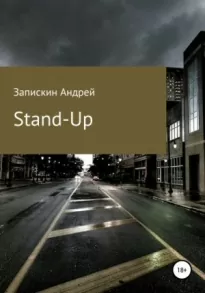RED SYMPHONY

- Автор: Dr. Landowsky
- Жанр: Старинная литература
Читать книгу "RED SYMPHONY"
G. - And so I personally consider that you have given a definition of three fundamental points, on the basis of which a plan can be made. That is what I am in agreement about with you for the present. But I confirm to you my mental reservations, i.e. my suspicion in relation to all that which you have said concerning people, organizations and facts. Now continue to follow the general lines of your plan.
R. - Yes, now this moment has arrived. But only a preliminary qualification: I shall speak on my own responsibility. I am responsible for the interpretation of those preceding points in the sense in which "They" understand them, but I admit that "They" may consider another plan to be more effective for the attainment of the three aims, and one quite unlike that which I shall now set out. Bear that in mind.
G. Very well, we shall bear it in mind. Please speak.
{p. 41} R. - We shall simplify. Insofar as the object is missing for which the German military might had been created - to give us power in the USSR - the aim now is to bring about an advance on the fronts and to direct the Hitlerist advance not towards the East, but the West.
{Why this change in goal? Why abandon the restoration of Trotsky?}
G. - Exactly. Have you thought of the practical plan of realization?
R. - I had had more than enough time for that at the Lubianka. I considered. So look: if there were difficulties in finding mutually shared points between us and all else took its normal course, then the problems comes down to again trying to establish that in which there is similarity between Hitler and Stalin.
G. - Yes, but admit that all this is problematical.
R. - But not insoluble, as you think. In reality problems are insoluble only when they include dialectical subjective contradictions; and even in that case we always consider possible and essential a synthesis, overcoming the "morally-impossible" of Christian metaphysicians.
G. - Again you begin to theorize.
R. - As the result of my intellecutal discipline - this is essential for me. People of a big culture prefer to approach the concrete through a generalization, and not the other way round. With Hitler and with Stalin one can find common ground, as, being very different people, they have the same roots; if Hitler is sentimental to a pathological degree, but Stalin is normal, yet both of them are egoists: neither one of them is an idealist, and for that reason both of them are bonapartists, i.e. classical Imperialists. And if just that is the position, then it is already not difficult to find common ground betveen them. Why not, if it proved possible between one Tsarina and one Prussian King ...
G. - Rakovsky, you are incorrigible ...
R. - You do not guess? If Poland was the point of union between Catherine and Frederick - the Tsarina of Russia and the King of Germany at that time, then why cannot Poland serve as a reason for the finding of common ground between Hitler and Stalin? In Poland the persons of Hitler and Stalin can coincide. and also the historical Tsarist Bolshevik and Nazi lines. Our line, "Their' line - also, as Poland is a Christian State and, what makes the matter even more complex, a Catholic one.
G. - And what follows from the fact of such a treble coincidence?
R. - If there is common ground then there is a possibility of agreement.
G. - Between Hitler and Stalin? ... Absurd! Impossible.
R. - In politics there are neither absurdities, nor the impossible.
G. - Let us imagine, as an hypothesis: Hitler and Stalin advance on Poland.
R. - Permit me to interrupt you; an attack can be called forth only by the following alternative: war or peace. You must admit it.
G. - Well, and so what?
R. - Do you consider that England and France, with their worse
{p. 42} armies and aviation, in comparison with Hitler's, can attack the united Hitler and Stalin?
G. - Yes, that seems to me to be very difficult ... unless America ...
R. - Let us leave the United States aside for the moment. Will you agree with me that as the result of the attack of Hitler and Stalin on Poland there can be no European war?
G. - You argue logically; it would seem impossible.
R. - In that case an attack or war would be useless. It would not call forth the mutual destruction of the bourgeois States: the Hitlerist threat to the USSR would continue in being after the division of Poland since theoretically both Germany and the USSR would have been strengthened to the same extent. In practice Hitler to a greater extent since the USSR does not need more land and raw materials for its strengthening, but Hitler does need them.
G. - This is a correct view ..., but I can see no other solution.
R. - No, there is a solution.
G. - Which?
R. - That the democracies should attack and not attack the aggressor.
G. - What are you saying, what hallucination! Simultaneously to attack and not to attack ... That is something absolutely impossible.
R. - You think so? Calm down ... Are there not two aggressors? Did we not agree that there will be no advance just because there are two? Well ... What prevents the attack on one of them?
G. - What do you want to say by that?
R. - Simply that the democracies will declare war only on one aggressor, and that will be Hitler.
G. - Yes, but that is an unfounded hypothesis.
R. - An hypothesis, but having a foundation. Consider: each State which will have to fight with a coalition of enemy States has as its main strategical objective to destroy them separately one after another. This rule is so well known that proofs are superfluous. So, agree with me that there are no obstacles to the creation of such conditions. I think that the question that Stalin will not consider himself aggrieved in case of an attack on Hitler is already settled. Is that not so? In addition geography imposes this attitude, and for that reason strategy also. However stupid France and England may be in preparing to fight simultaneously against two countries, one of which wants to preserve its neutrality, while the other, even being alone, represents for them a serious opponent, from where and from which side could they carry out an attack on the USSR? They have not got a common border; unless they were to advance over the Himalayas ... Yes, there remains the air front, but with what forces and from where could they invade Russia? In comparison with Hitler they are weaker in the air. All the arguments I have mentioned are no secret and are well known. As you see, all is simplified to a considerable extent.
G.- Yes, your arguments seem to be logical in the case if the conflict will be limited to four countries; but there are not four, but more, and neutrality is not a simple matter in a war on the given scale.
{p. 43} R. - Undoubtedly, but the possible participation of many countries does not change the power relationships. Weigh this in your mind and you will see how the balance will continue, even if others or even all European States come in. In addition, and this is very important, not one of those States, which will enter the war at the side of England and France will be able to deprive them of leadership; as a result the reasons which will prevent their attack on the USSR will retain their significance.
G. - You forget about the United States.
R. - In a moment you will see that I have not forgotten. I shall limit myself to the investigation of their function in the preliminary programme, which occupies us at present, and I shall say that America will not be able to force France and England to attack Hitler and Stalin simultaneously. In order to attain that the United States would have to enter the war from the very first day. But that is impossible. In the first place because America did not enter a war formerly and never will do so if it is not attacked. Its rulers can arrange that they will be attacked, if that will suit them. Of that I can assure you. In those cases when provocation was not successful and the enemy did not react to it, aggression was invented. In their first international war, the war against Spain, of the defeat of which they were sure, they invented an aggression, or, more correctly, "They" invented it. In 1914 provocation was successful. True, one can dispute technically if there was one, but the rule without exceptions is that he who makes a sudden attack without warning, does it with the help of a provocation. Now it is like this: this splendid American technique which I welcome at any moment, is subject to one condition: that aggression should take place at a suitable moment, i.e. the moment required by the United States who are being attacked; that means then, when they will have the arms. Does this condition exist now? It is clear that it does not. In America there are at present a little less than one hundred thousand men under arms and a middling aviation: it has only an imposing fleet. But you can understand that, having it, it can not persuade its allies to decide on an attack on the USSR, since England and France have preponderance only at sea. I have also proved to you that from that side there can be no change in the comparative strengths of the forces.
G. - Having agreed with this, I ask you again to explain once more the technical realization.
R. - As you have seen, given the coincidence of the interests of Stalin and Hitler with regard to an attack on Poland, all comes down to the formalization of this full similarity of aims and to make a pact about a double attack.
G. - And you think this is easy?
R. - Frankly, no. Here we need a diplomacy which is more experienced than that of Stalin. There ought to have been available the one which Stalin had decapitated, or the one which now decays in the Lubianka. In former times Litvinov would have been capable, with some difficulties, although his race would have been a great obstacle for negotiations with Hitler; but now this is a finished man and he is destroyed by a terrible panic; he is experiencing an animal fear of Molotov, even more than of Stalin. His whole talent is directed towards making sure that they should not think that he is a Trotzkyist. If he were to hear of the necessity of arranging closer relations with Hitler, then that
{p. 44} would be enough for him to manufacture for himself the proof of his Trotzkyism. I do not see a man who is capable of this job; in any event he would have to be a pure-blooded Russian. I could offer my services for guidance. At the present moment I would suggest to the one who begins the talks, that they should be strictly confidential, but with great open sincerity. Given a whole wall of various prejudices only truthfulness can deceive Hitler.
G. - I again do not understand your paradoxial expressions.
R. - Forgive me, but this only appears to be so; I am forced by the synthesis to do so. I wanted to say that with Hitler one must play a clean game concerning the concrete and most immediate questions. It is necessary to shew him that the game is not played in order to provoke him into war on two fronts. For example, it is possible to promise him and to prove at the most suitable moment that our mobilization will be limited to a small number of forces, required for the invasion of Poland, and that these forces will not be great. According to our real plan we shall have to place our main forces to meet the possible Anglo French attack. Stalin will have to be generous with the preliminary supplies which Hitler will demand, chiefly oil. That is what has come to my mind for the moment. Thousands of further questions will arise, of a similar character, which will have to be solved so that Hitler, seeing in practice that we only want to occupy our part of Poland, would be quite certain of that. And insofar as in practice it should be just like that, he will be deceived by the truth.
{"provoke him into war on tvo fronts" - i.e. the fall of Hitler is now more important than the fall of Stalin or the restoration of Trotsky}
G. - But in what, in this case, is there a deception?
R. - I shall give you a few minutes of time so that you yourself can discover just in what there is a deception of Hitler. But first I want to stress, and you should take note, that the plan which I have indicated here, is logical and normal and I think that one can achieve that the Capitalistic States will destroy each other, if one brings about a clash of their two wings: the fascist and the bourgeois. I repeat that the plan is logical and normal. As you have slready heen able to see, there is no intervention here of mysterious or unusual factors. In short in order that one should be able to realize the plan, "Their" intervention is not required. Now I should like to guess your thoughts: are you not now thinking that it would be stupid to waste time on proving the unprovable existence and power held by "Them." Is that not so?
G. You are right.
R. - Be frank with me. Do you really not observe their intervention? I informed you, wanting to help you, that their intervention exists and is decisive, and for that reason the logic and naturalness, of the plan are only apparances ... Is it really true that you do not see "Them"?
G. - Speaking sincerely, no.
R. - The logic and naturalness of my plan is only an appearance. It would be natural and logical that Hitler and Stalin would inflict defeat on each other. For the democracies that would be a simple and easy thing, if they would have to put forward such an aim, for them it would be enough that Hitler should be permitted, make note "permitted" to attack Stalin. Do not tell me that Germany could be defeated. If the Russian distances and the dreadful fear of Stalin and his henchmen of the Hitlerite axe and the revenge of their victims will not be enough
{p. 45} in order to attain the military exhaustion of Germany, then there will be no obstacles to the democracies, seeing that Stalin is losing strength, beginning to help him wisely and methodically, continuing to give that help until the complete exhaustion of both armies. In reality that would be easy, natural and logical, if those motives and aims which are put forward by the democracies and which most of their followers believe to be the true ones, and not what they are in reality - pretexts. There is only one aim, one single aim: the triumph of Communism; it is not Moscow which will impose its will on the democracies, but New York, not the "Comintern," but the "Capintern" on Wall Street. Who other that he could have been able to impose on Europe such an obvious and absolute contradiction? What force can lead it towards complete suicide? Only one force is able to do this: money. Money is power and the sole power.
G. - I shall be frank with you, Rakovsky. I admit in you an exceptional gift of talent. You possess brilliant dialectic, persuasive and subtle: when this is not enough for you, then your imagination has command of means in order to extend your colourful canvas, while you invent brilliant and clear perspectives; but all this, although it provokes my enthusiasm, is not enough for me. I shall go over to putting questions to you, assuming that I believe all that you have said.
R. - And I shall give you replies, but with one single condition, that you should not add anything to what I shall say, nor deduct.
G. - I promise. You assert that "They" hinder or will hinder a German-Soviet war, which is logical from the point of view of the Capitalists. Have I explained it correctly?
R. - Yes, precisely so.
G. - But the reality of the present moment is such that Germany has been permitted to re-arm and expand. This is a fact. I already know that in accordance with your explanation this was called forth by the Trotzkyist plan, which fell through thanks to the "cleanings-out" now taking place; thus the aim has been lost. In the face of a new situation you only advise that Hitler and Stalin should sign a pact and divide Poland. I ask you: how can we obtain a guarantee that, having the pact, or not having it, carrying out, or not carrying out the partition, Hitler will not attack the USSR?
R. - This cannot be guaranteed.
G. - Then why go on talking?
R. - Do not hurry. The magnificent threat to the USSR is real and exists. This is not an hypothesis and not a verbal threat. It is a fact and a fact which obliges. "They" already have superiority over Stalin, a superiority which cannot be denied. Stalin is offered only one altemative, the right to choose, but not full freedom. The attack of Hitler will come in any case of its own accord; "They" need not do anything to make it happen but only leave him the chance of acting. This is the basic and determining reality, which has been forgotten by you owing to your excessively Kremlin-like way of thinking ... Egocentrism, Sir, egocentrism.
G. - The right to choose?
R. - I shall define it exactly once more, but shortly: either there will be an attack on Stalin, or there will come the realization of the plan I have indicated, according to which the European Capitalistic
{p. 46} States will destroy each other. I drew attention to this alternative, but as you see it was only a theoretical one. If Stalin wants to survive then he will be forced to realize the plan which has been proposed by me and ratifed by "Them."
G. - But if he refuses?
R. - That will be impossible for him. The expansion and re-armament of Germany will continue. When Stalin will be faced by this gigantic threat ..., then what will he do? This will be dictated to him by his own instinct of self-preservation.
G. - It seems that events must develop only according to the orders indicated by "Them."
R. - And it is so. Of course, in the USSR to-day things still stand llke this, but sooner or later it wili happen like that all the same. It is not difficult to foretell and to suggest for carrying out something, if it is profitable for the person who must realize the matter, in the given case Stalin, who is hardly thinking of suicide. It is much more difficult to give a prognosis and to force to act as needed someone for whom that is not profitable, but who must act nevertheless, in the given case the democracies. T have kept the explanation for this moment to give a concrete picture of the true position. Reject the wrong thought that you are the arbiters in the given situation, since "They" are the arbiters.
G. - "They" both in the first and the second case ... Therefore we must deal with shadows?
R. - But are facts shadows? The international situation will be extraordinary, but not shadowy; it is real and very real. This is not a miracle; here is predetermined the future policy ... Do you think this is the work of shadows?
G.--But let us see; let us assume that your plan is accepted ... But we must have something tangible, personal, in order to be able to carry out negotiations.





